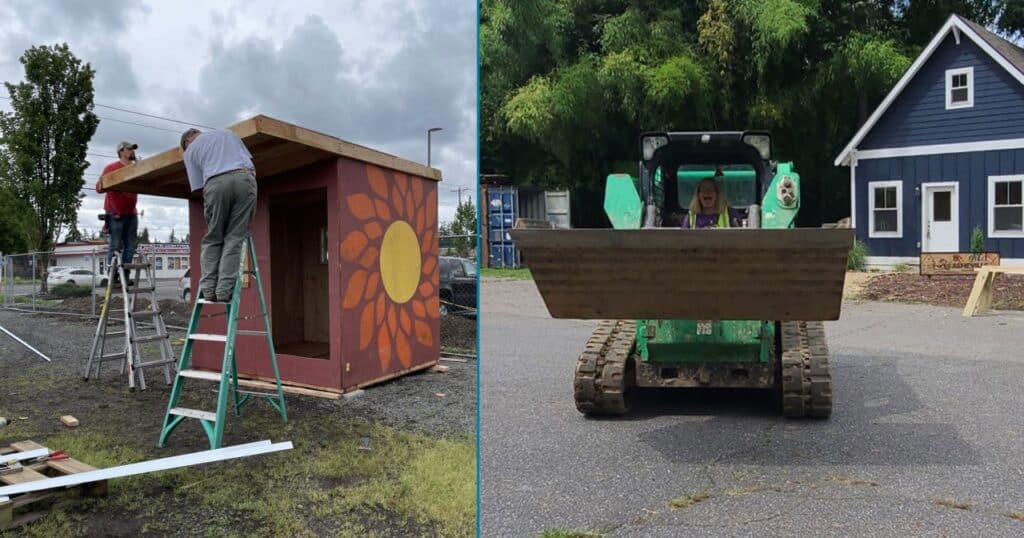UCC churches in North Carolina and Oregon use land to settle houseless neighbors
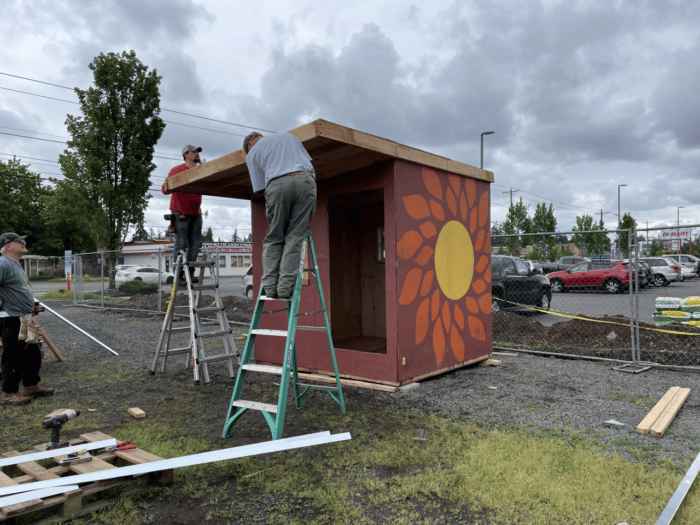
Two United Church of Christ congregations, one in North Carolina and another in Oregon, are using church land to provide safe shelter to their houseless neighbors.
On the campus of Parkrose Community UCC in Portland, Ore., a micro-pod village is under construction.
In Asheville, N.C., a village of tiny homes is going up on land ceded by Land of the Sky UCC to the community organization building it.
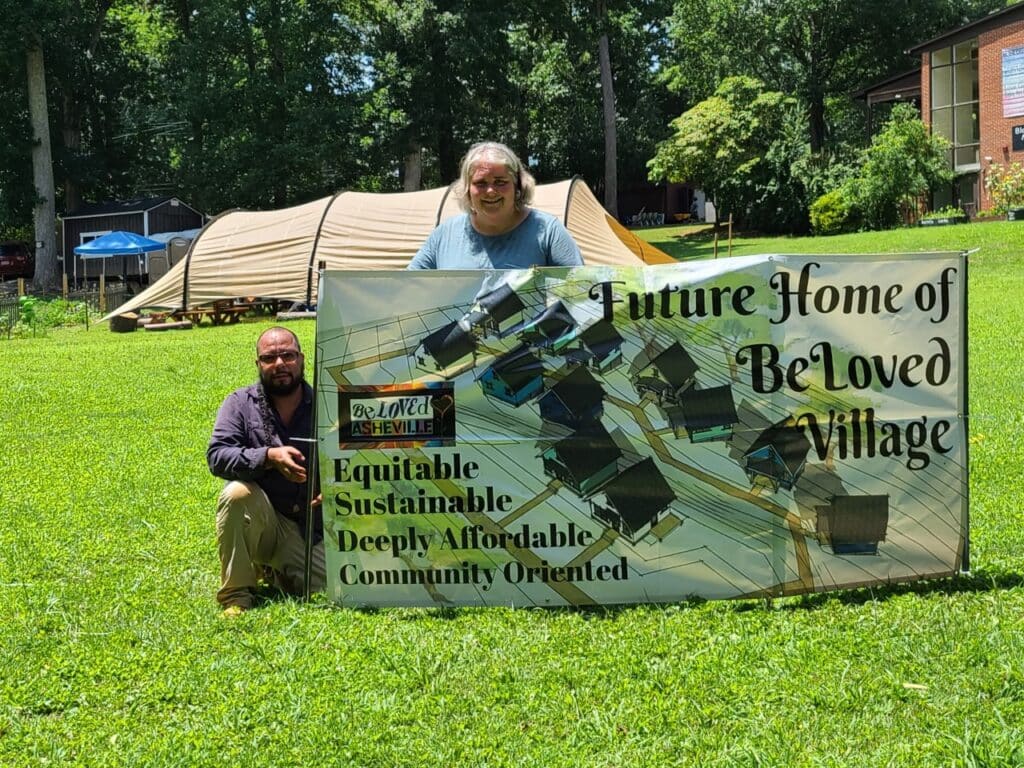
In both cases, the congregations have been directly involved, partnering with local nonprofits that are shepherding the projects.
The Rev. Amy Cantrell, one of the founders of BeLoved Asheville, said it’s a simple concept. “If God is our home, we are called to be homemakers with each other.”
Sleeping-pod partnership
The Portland church is hosting Parkrose Community Village, made up of 11 sleeping pods and communal space. It’s working with the nonprofit, WeShine, to bring the project to fruition.
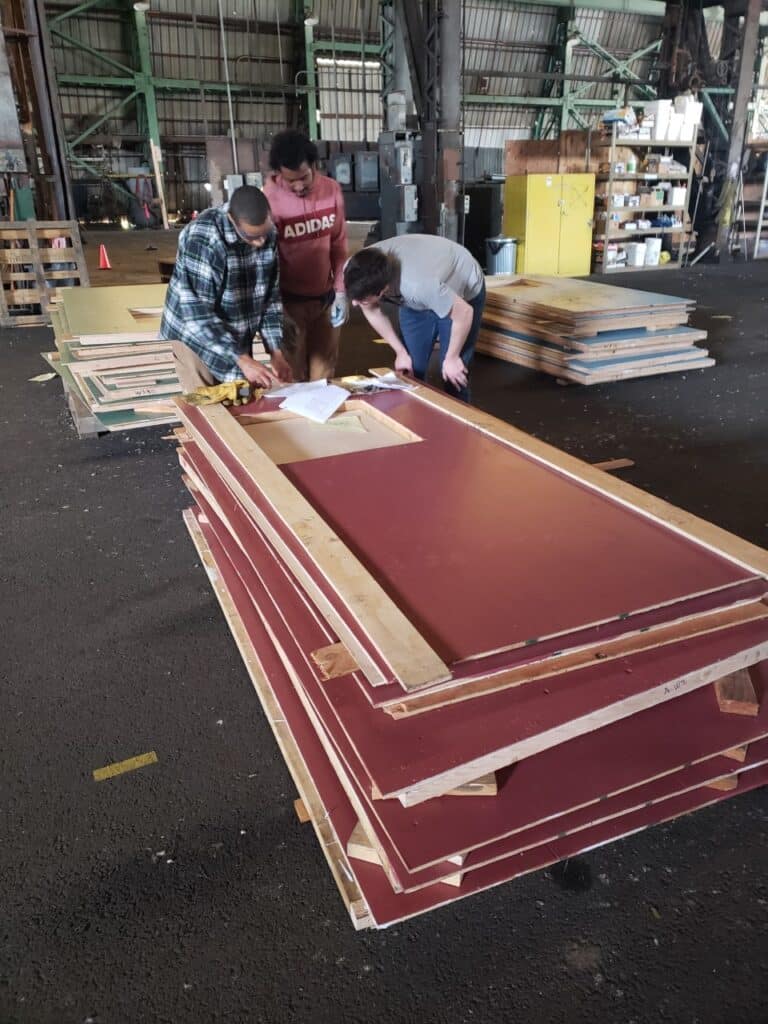
“WeShine is a Welcoming, Empowering, Safe Habitation Initiative with Neighborhood Engagement,” said Janet McManus, a founder and executive director.
“We incorporated WeShine in May 2021 with a vision of developing and operating neighborhood-based, transitional micro-villages to provide shelter and wraparound services to some of the most underserved segments of the unhoused population: LGBTQ+, BIPOC, young adults transitioning out of foster care or in college, people with disabilities, seniors and more.”
WeShine partnered with Parkrose UCC after McManus learned that the church was hosting tenters on their grounds and approached the church about leasing land.
“The WeShine proposal to build a micro-village of 10 sleeping pods to serve LGBTQ+ with a priority to serve who were also BIPOC, resonated with the congregation and church leadership,” McManus said.
Community spaces
The Rev. Dianne Rodriguez, interim pastor at Parkrose, said eight or nine of the eleven pods are already up — 10 for guests and one for a program coordinator who will live on the site.
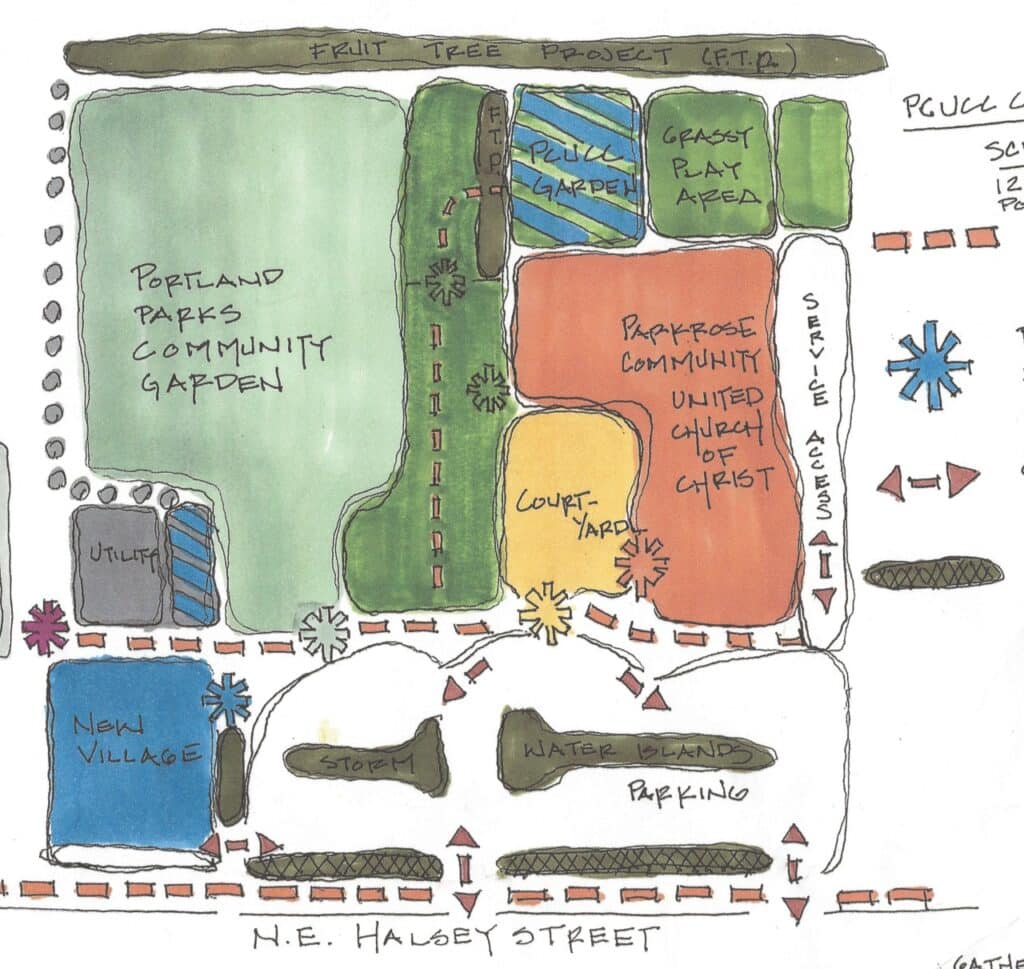
“There will also be community all-purpose spaces – a dining area, bathrooms, communal gathering space as well as a private conversation area,” she said.
“All of the potential tenants have been interviewed; people will soon be selected for a pod and available for move-in at the end of July or beginning of August.”
WeShine used a GoFundMe campaign to supplement the grants and other funding secured for the project. The church held building parties and recruited volunteers to help assemble the pods and ready the site.
“We have learned so much from our WeShine partners and many of us have worked alongside them as the sleeping pods have come together,” wrote Parkrose moderator Blair Loudat in the church’s latest newsletter. “We are grateful for the dedication and expertise of their and our own volunteers.”
‘Good neighbor’ pact
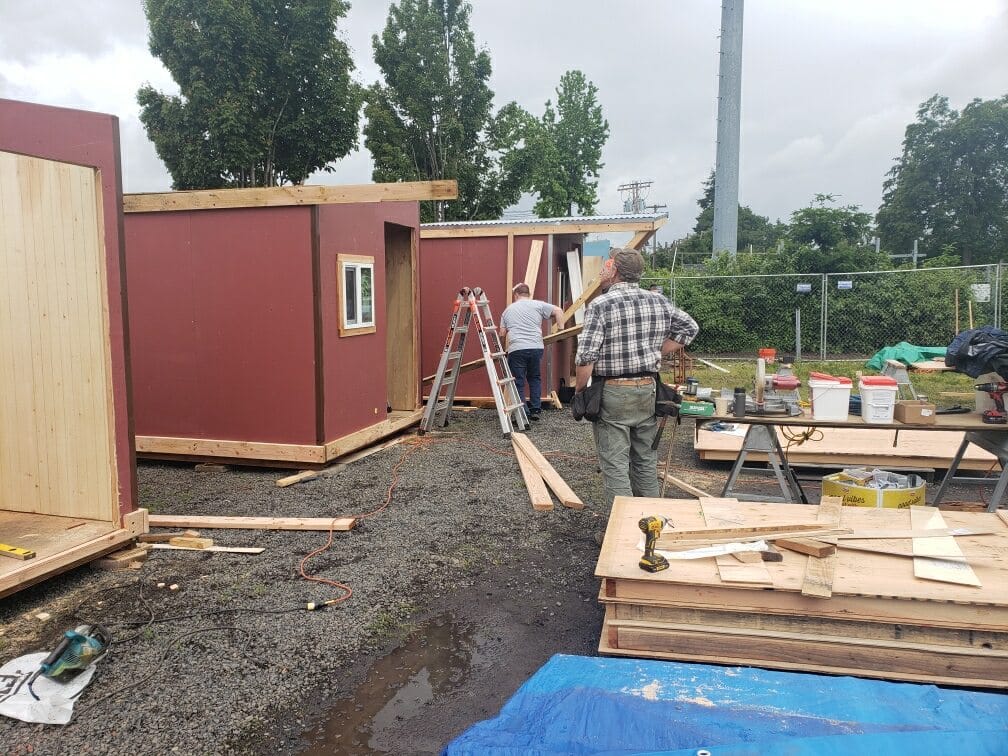
A community-based group – which includes WeShine, church members, neighbors and surrounding businesses — is still working on what Loudat called a “good neighbor agreement.”
Rodriguez said the micro-village will be a “self-governing community, with protocols in place. Tenants will sign a covenant explaining what is expected. One can be asked to leave if they are not living into that covenant.”
She also noted that Parkrose Community Village is a “low-barrier program. Addiction won’t prohibit someone from living there. But the goal is toward sobriety.
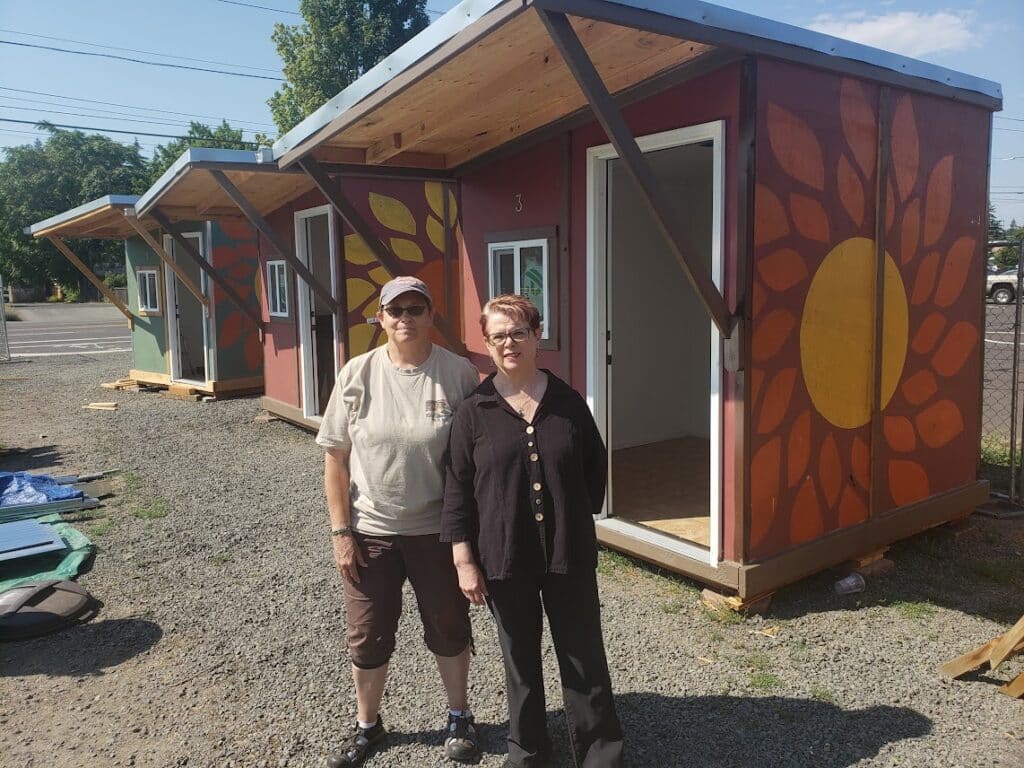
“Each living arrangement is temporary – operationally, it’s a said two-year period, but organizers are trying really hard to take each case as it happens,” Rodriguez said. “Organizers are also working on the livelihood piece with plans to help tenants find a trade,” and the pastor sees “plenty of local opportunities for tenants to learn skills and further their education.”
‘Mission and purpose’
“This work aligns so well with several tenets of our mission and purpose,” Loudat noted, pointing out that the church is continuing the work of Jesus by:
- “Building relationships and working side by side with the wider community.”
- “Advocating for peace and justice in our city, our nation, and our world.”
- “Enthusiastically welcoming and meeting people where they are in life.”
- “Breathing life into scripture to deepen our spirituality and bring it alive in our world.”
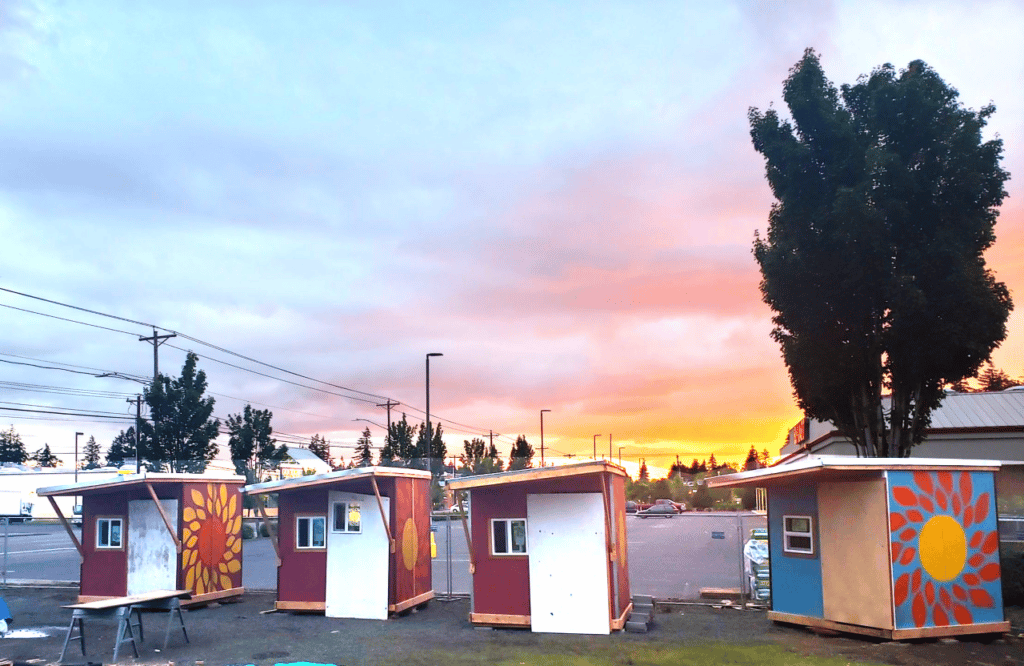
With the village build-out about complete, “we still need to get permits for our community buildings that will provide toilets, shower, kitchenette and a gathering space,” McManus said. “We are also still putting in pathways and other features. We have hired a couple of staff who will work in the village and have selected our first group of guests. We have funding to build a second village in 2022 and are in the midst of securing land for that village.”
Twelve tiny homes
In Asheville, construction on BeLoved Village began in earnest in July. The project, imagined in 2017, was a response to a tragedy.
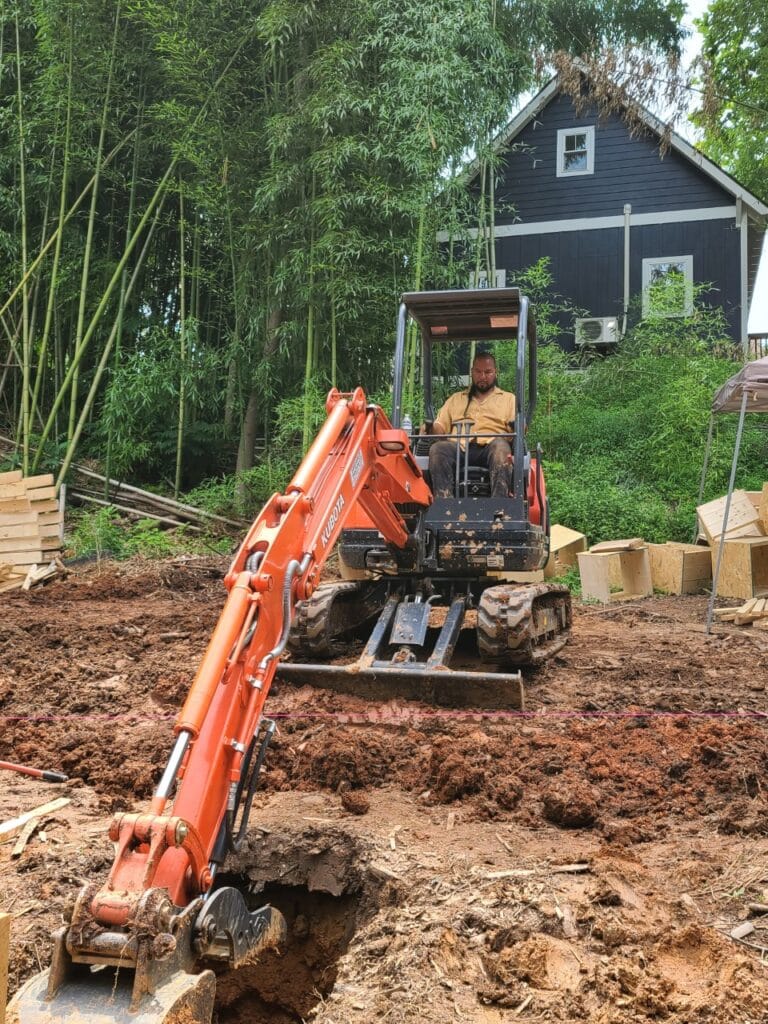
(Photo credit: BeLoved Asheville)
“In the fall of 2016, our friend, Janet Jones, froze to death on the street of Asheville,” said Cantrell, co-director of BeLoved Asheville, an “intentional community,” that works with and for people on the margins. “On any given night, 500 to 600 adults and 700 children are homeless here.
“When Janet died, we sat in a circle of impacted people at BeLoved, called Homeless Voice, and we asked one question: ‘What are we going to do about this?’”
The group partnered with Land of the Sky UCC. Its pastor, the Rev. Sara Wilcox, said the church, with over four acres on campus, was uniquely positioned to help.
“We are close to a major bus line,” she said in 2019. “We are on an economic thoroughfare. This property is zoned for housing. In many ways, we are uniquely suited for this.”
Interrupted by COVID
In 2018, the church donated more than an acre of land for the micro-village of a dozen tiny homes that will sit on the adjoining property.
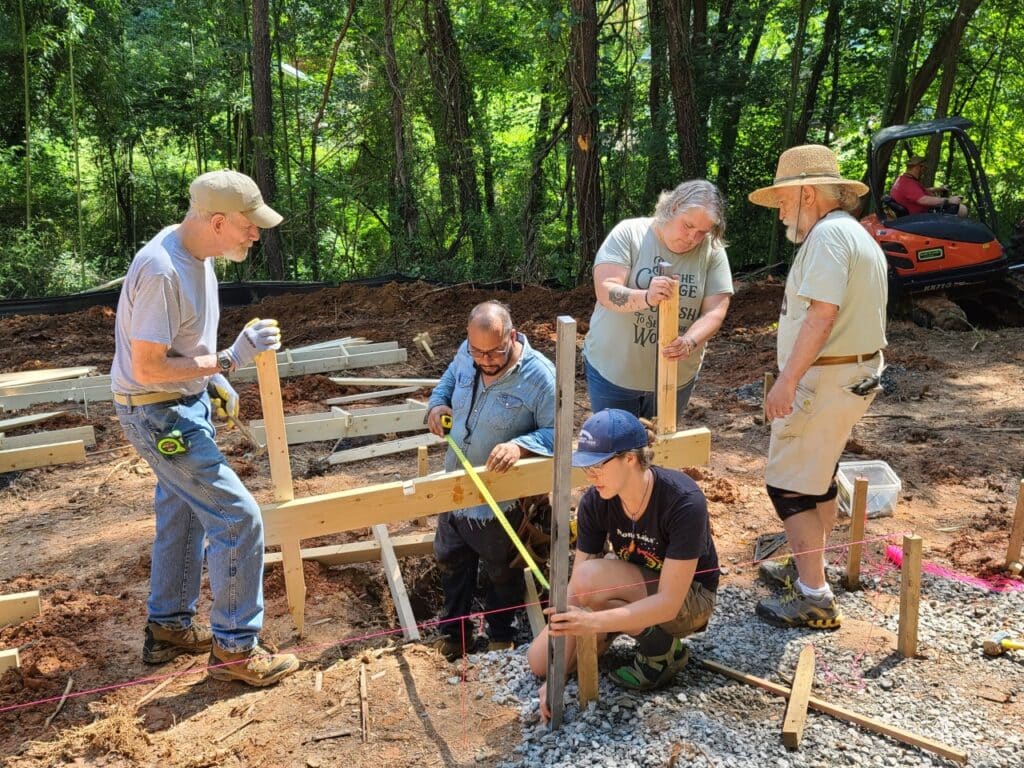
Since then, there have been surveys and site plans. Construction of the model home started in late 2019. BeLoved put together a team of expert volunteers — architects, builders and engineers.
“So many of those people were already in our circle through faith community partnerships — that was really exciting,” Cantrell said. “We solidified our plans and then we began to bring the community around to our idea. We broke ground.” Then the pandemic hit “and set our plans all topsy turvy.”
After “rallying to finish the first house” in 2020, Cantrell and BeLoved co-director Ponkho Bermejo had to reboot. They remained committed to the plan to create a village where homes that would be “deeply affordable, sustainable and produce equity.” But COVID caused all kinds of setbacks and delays.
For example, BeLoved Asheville needed a one-hour meeting with the sewer department as part of the permit process. Getting that meeting set up took five months, Cantrell said. She also pointed to one of their supply chain issues: the cost of lumber. It tripled.
‘We know people’
But now, in July 2022, it’s all systems go. She and a group of volunteers are spending a lot of time on site, in the build-out of this first phase of the $1.2 million project.
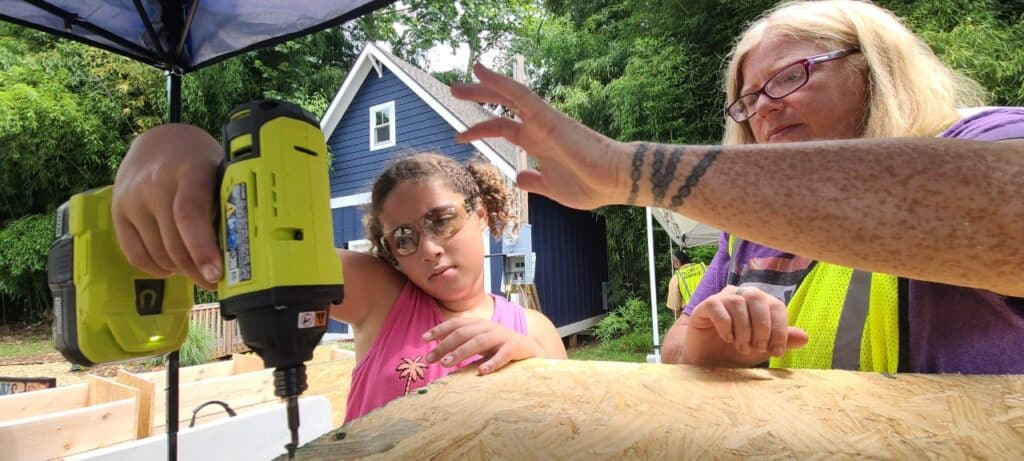
They are pouring concrete footers, readying foundations for three homes which will be constructed over the next three to four months. Four homes will be built in each of the next two phases, for a total of 12 one- or two-bedroom, fully furnished units. All of them will be equipped with kitchens, bathrooms and a washer and dryer.
“We are very excited about getting started,” Cantrell said, putting the delays in the past. “The process just continued to amaze us. People exercise their faith, believing that we can be the solution. We experience the urgency because we know people living through this housing crisis.”
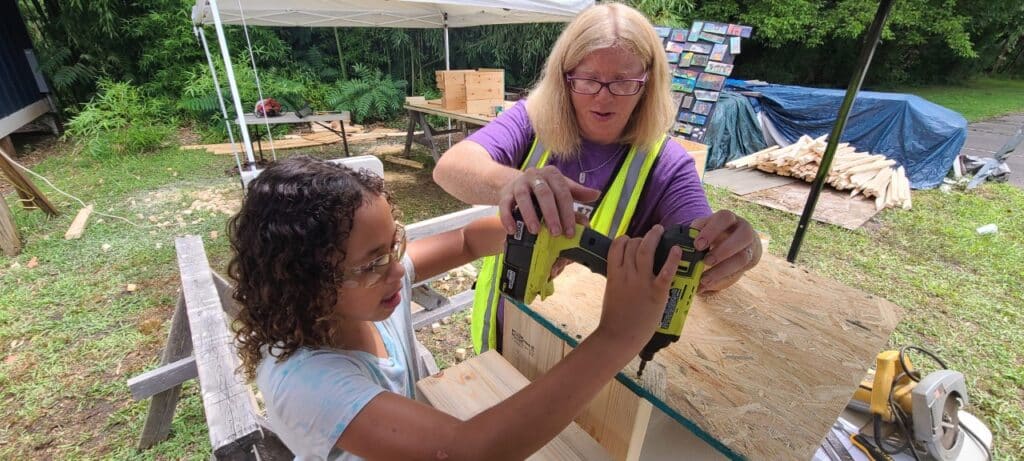
“I am standing in Land of the Sky,” Cantrell said one Thursday in July. “We are right here off of their parking lot. We are working in the church and with folks in church all the time. They are many of our volunteers.”
‘Church is happening’
They also are some of the tiny village’s biggest supporters.
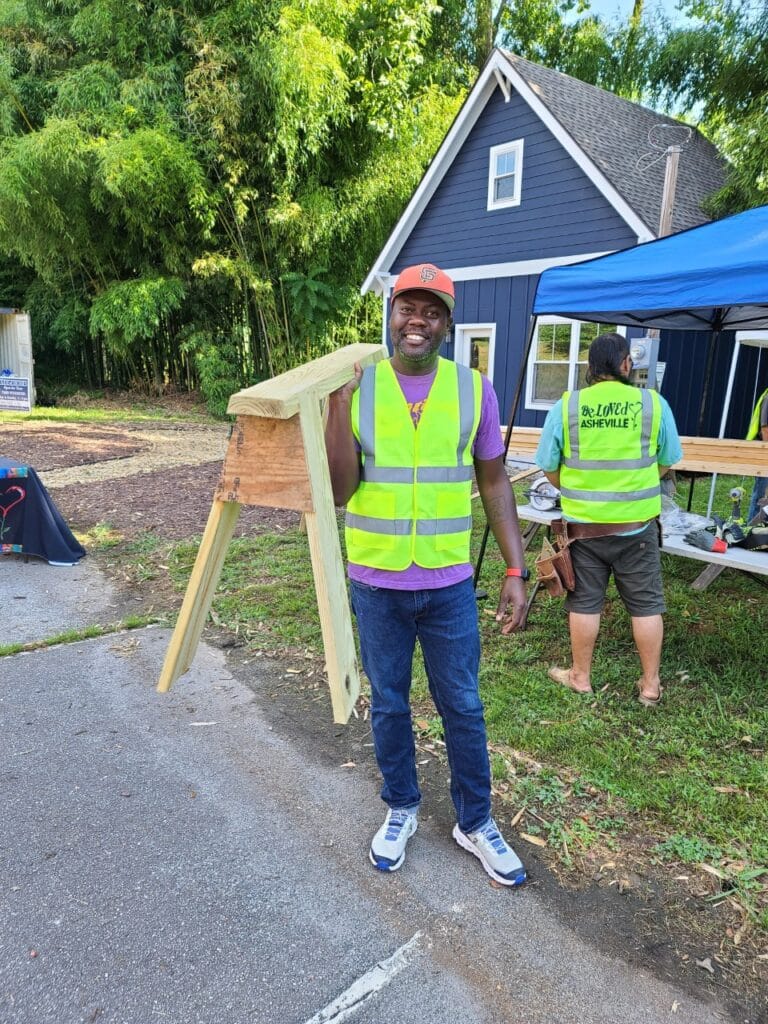
“We were roofing the model house,” Cantrell said. “Our roofers called and said, ‘We caught a free day, have Sunday morning, can we come?’ I texted Sara, who was getting ready to stand up and offer prayers at Sunday service. Everybody came out from church to watch. Church is happening in the sanctuary and right outside.”
Construction on BeLoved Village is expected to be complete by year’s end or early 2023.
Earning equity
BeLoved Asheville will have a community committee involved in selecting residents. That process will begin, Cantrell said, close to when they expect their certificate of occupancy.
“We plan to be doing a lot of community building,” Cantrell said. “They (the homeowners) are going to write their own covenant. We’ve set aside land, so they can plan their own commons. This will be permanent housing; people will be earning equity in their homes to lift them out of poverty.
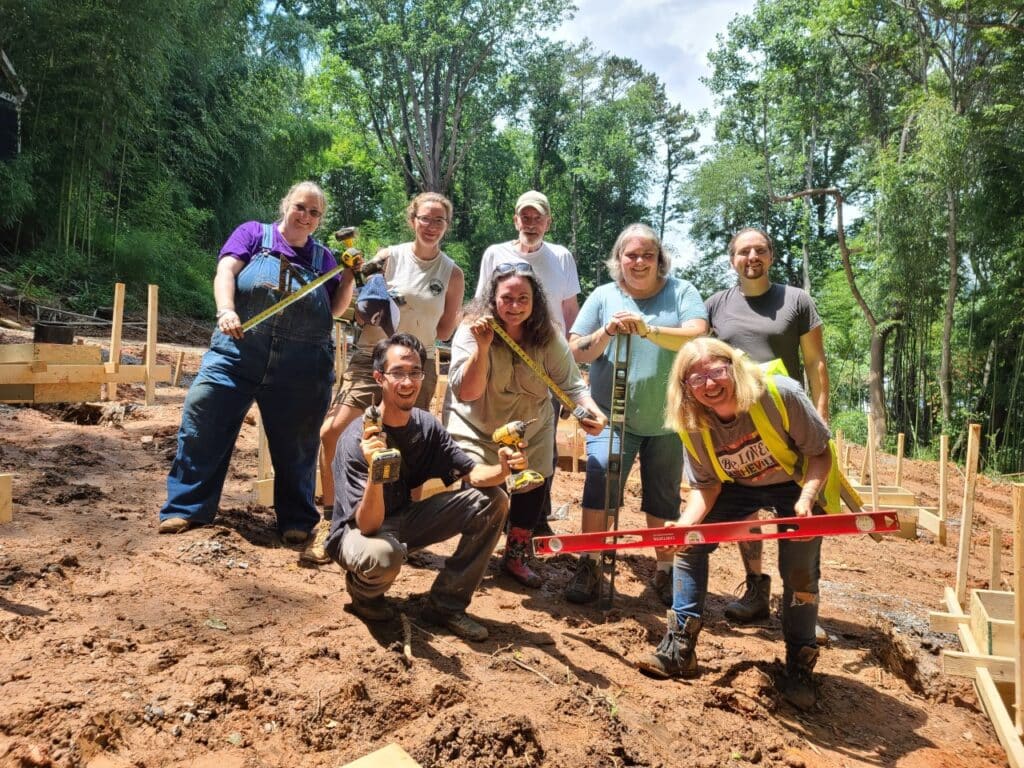
“One of the volunteers said this is very inspiring. ‘We love our neighbors, we are going to make a difference, and we are going to do that in community. None of us are going to be living in these houses, but we leave the work site happy.’
“We are absolutely delighted to be where we are.”
Content on ucc.org is copyrighted by the National Setting of the United Church of Christ and may be only shared according to the guidelines outlined here.
Related News
A Moment of Silence
The weekend news was alarming. Two students shot and killed with 9 injured at Brown University...
Read MoreIn hope-filled worship service, UCC and United Church of Canada celebrate full communion past and future
On Saturday, Dec. 13, many from the United Church of Christ (UCC) and the United Church of...
Read More‘A Gift of God to the World:’ Christmas greetings from the General Minister and President
As Christmas quickly approaches, UCC General Minister and President/CEO the Rev. Karen Georgia...
Read More